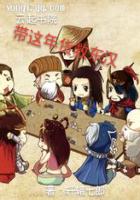This conclusion, which I have thus far supported merely by reference to the Iliad itself, becomes irresistible as soon as we take into account the results obtained during the past thirty years by the science of comparative mythology. As long as our view was restricted to Greece, it was perhaps excusable that Achilleus and Paris should be taken for exaggerated copies of actual persons. Since the day when Grimm laid the foundations of the science of mythology, all this has been changed. It is now held that Achilleus and Paris and Helena are to be found, not only in the Iliad, but also in the Rig-Veda, and therefore, as mythical conceptions, date, not from Homer, but from a period preceding the dispersion of the Aryan nations. The tale of the Wrath of Achilleus, far from originating with Homer, far from being recorded by the author of the Iliad as by an eyewitness, must have been known in its essential features in Aryana-vaedjo, at that remote epoch when the Indian, the Greek, and the Teuton were as yet one and the same. For the story has been retained by the three races alike, in all its principal features; though the Veda has left it in the sky where it originally belonged, while the Iliad and the Nibelungenlied have brought it down to earth, the one locating it in Asia Minor, and the other in Northwestern Europe.[153]
[153] For the precise extent to which I would indorse the theory that the Iliad-myth is an account of the victory of light over darkness, let me refer to what I have said above on p. 134. I do not suppose that the struggle between light and darkness was Homer's subject in the Iliad any more than it was Shakespeare's subject in "Hamlet." Homer's subject was the wrath of the Greek hero, as Shakespeare's subject was the vengeance of the Danish prince. Nevertheless, the story of Hamlet, when traced back to its Norse original, is unmistakably the story of the quarrel between summer and winter; and the moody prince is as much a solar hero as Odin himself. See Simrock, Die Quellen des Shakespeare, I. 127-133.
Of course Shakespeare knew nothing of this, as Homer knew nothing of the origin of his Achilleus. The two stories, therefore, are not to be taken as sun-myths in their present form. They are the offspring of other stories which were sun-myths; they are stories which conform to the sun-myth type after the manner above illustrated in the paper on Light and Darkness. [Hence there is nothing unintelligible in the inconsistency--which seems to puzzle Max Muller (Science of Language, 6th ed. Vol. II. p. 516, note 20)--of investing Paris with many of the characteristics of the children of light. Supposing, as we must, that the primitive sense of the Iliad-myth had as entirely disappeared in the Homeric age, as the primitive sense of the Hamlet-myth had disappeared in the times of Elizabeth, the fit ground for wonder is that such inconsistencies are not more numerous.] The physical theory of myths will be properly presented and comprehended, only when it is understood that we accept the physical derivation of such stories as the Iliad-myth in much the same way that we are bound to accept the physical etymologies of such words as soul, consider, truth, convince, deliberate, and the like. The late Dr. Gibbs of Yale College, in his "Philological Studies,"--a little book which I used to read with delight when a boy,--describes such etymologies as "faded metaphors."In similar wise, while refraining from characterizing the Iliad or the tragedy of Hamlet--any more than I would characterize Le Juif Errant by Sue, or La Maison Forestiere by Erckmann-Chatrian--as nature-myths, I would at the same time consider these poems well described as embodying "faded nature-myths."In the Rig-Veda the Panis are the genii of night and winter, corresponding to the Nibelungs, or "Children of the Mist," in the Teutonic legend, and to the children of Nephele (cloud) in the Greek myth of the Golden Fleece. The Panis steal the cattle of the Sun (Indra, Helios, Herakles), and carry them by an unknown route to a dark cave eastward. Sarama, the creeping Dawn, is sent by Indra to find and recover them. The Panis then tamper with Sarama, and try their best to induce her to betray her solar lord. For a while she is prevailed upon to dally with them; yet she ultimately returns to give Indra the information needful in order that he might conquer the Panis, just as Helena, in the slightly altered version, ultimately returns to her western home, carrying with her the treasures (ktemata, Iliad, II. 285) of which Paris had robbed Menelaos.
But, before the bright Indra and his solar heroes can reconquer their treasures they must take captive the offspring of Brisaya, the violet light of morning. Thus Achilleus, answering to the solar champion Aharyu, takes captive the daughter of Brises. But as the sun must always be parted from the morning-light, to return to it again just before setting, so Achilleus loses Briseis, and regains her only just before his final struggle. In similar wise Herakles is parted from Iole ("the violet one"), and Sigurd from Brynhild. In sullen wrath the hero retires from the conflict, and his Myrmidons are no longer seen on the battle-field, as the sun hides behind the dark cloud and his rays no longer appear about him.
Yet toward the evening, as Briseis returns, he appears in his might, clothed in the dazzling armour wrought for him by the fire-god Hephaistos, and with his invincible spear slays the great storm-cloud, which during his absence had wellnigh prevailed over the champions of the daylight. But his triumph is short-lived; for having trampled on the clouds that had opposed him, while yet crimsoned with the fierce carnage, the sharp arrow of the night-demon Paris slays him at the Western Gates. We have not space to go into further details. In Mr.















